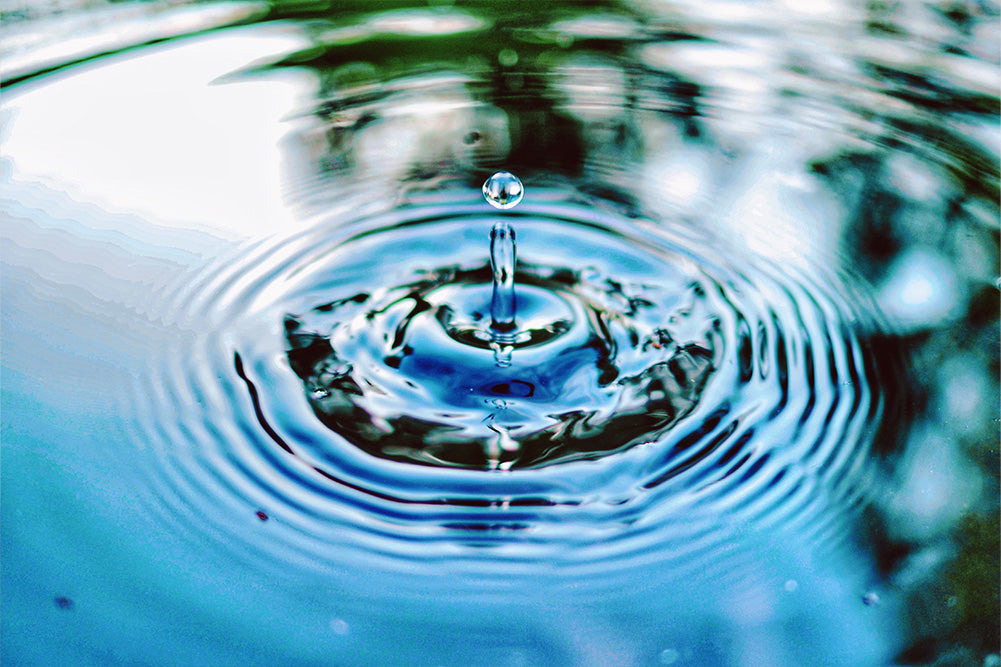Your Cart is Empty
April 04, 2023 4 min read

Many Americans in suburban and urban areas rely on grocery stores and tap water for their drinking water supply. However, not everyone can–or chooses to–access water in this way. In parts of the country, many Americans rely on personal or community wells as their main source of water. For those using wells, it is important to stay informed of the health risks involved with low pH well water.
Alkaline water is water with a higher pH than regular drinking water. The pH scale assigns a numerical value to different liquids based on how acidic (under 7), neutral (7), or alkaline (over 7) they are. Regular water typically has a pH of 7, but alkaline water’s pH is usually between 7 and 9 (1). Alkaline water filters remove harmful contaminants while keeping in healthy minerals like magnesium that other purifiers strip out.
Since well water is the main source of drinking water for many, especially in rural areas, it is crucial to ensure that this water is safe to drink. However, it is also important to consider the pH of your well water. Low pH, or acidity, can be caused by many factors, including acidic soil or rock, acid rain, industrial pollution, or agricultural runoff. Any of these environmental factors will lower the pH of well water.
Whatever may be causing the low pH in well water, drinking low pH water may cause health effects. For example, according to nutritionist Kelli McGrane, “Drinking well water with a low pH level may lead to digestive issues, such as acid reflux and heartburn” (2). This is because the high acidity of low pH water damages the stomach lining. Additionally, tooth enamel decays from highly acidic liquids, including low pH water, which can lead to dental erosion. Skin irritation can also occur if low pH well water is used for alternate purposes, like bathing, as it can dry out the skin. Lastly, well water is also susceptible to heavy metal leaching, which can be harmful to human health. Heavy metal leaching can lead to high concentrations of heavy metals in the water consumed, and this greatly increases the risk of heavy metal poisoning (2).
Acidic well water is clearly something to be avoided if possible. For those who consume well water daily, it is possible to treat low pH well water and raise its pH to a healthy drinking level. For example, a soda ash feeder can raise well water’s pH by a whole 1 unit on the scale. This could take acidic water with a pH of 6 up to a neutral pH of 7. One unit on the pH scale is a tenfold increase in alkalinity. The downside of a soda ash feeder is that they must be replaced every few months (3). Another usable filter is the calcite neutralizer, which only needs to be replaced once a year. A Seychelle alkaline water filter is an affordable and highly effective option for increasing the pH of your water. It will raise well water pH up to 9.5 so you can enjoy the benefits of alkaline water.
High pH water, or alkaline water, holds many health benefits outside of those of regular drinking water. It can help support both pet and human health. For example, research shows that high pH water may prevent acid reflux, reduce blood viscosity, promote better digestive health, and keep you hydrated longer than regular drinking water. Alkaline water has also been seen to help equalize pH levels within the body, offsetting any negative effects of acids within the body.
Well water is susceptible to becoming acidic due to many environmental factors, including acid rain and industrial runoff. Acidic (low pH) water can be a health risk if consumed, so many well owners have to purchase filtration systems to raise the water’s pH again. For a short term solution to acidic water, a Seychelle water filter is the clear choice.
Can you drink well water with a low pH?
While you can drink water with a low pH, there are health risks involved. It is not recommended to drink low pH well water for its potential health risk.
Why does my well water have a low pH?
Well water can have a low pH due to a variety of environmental factors, like acidic soil and acid rain, among others.
How do I raise the pH of my well water?
A calcite neutralizer and soda ash feeders are both viable long term solutions to raising your water’s pH. For more affordable and easy fix, however, Seychelle water filters will not just raise the pH of your water, but remove many other harmful contaminants as well, including heavy metals and PFAS.
References